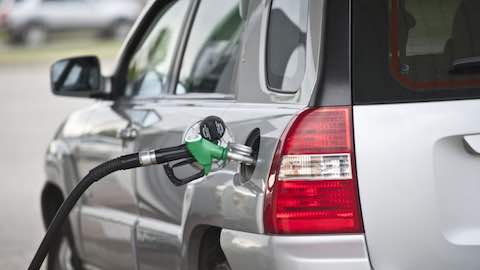- MENU
- HOME
- SEARCH
- WORLD
- MAIN
- AFRICA
- ASIA
- BALKANS
- EUROPE
- LATIN AMERICA
- MIDDLE EAST
- United Kingdom
- United States
- Argentina
- Australia
- Austria
- Benelux
- Brazil
- Canada
- China
- France
- Germany
- Greece
- Hungary
- India
- Indonesia
- Ireland
- Israel
- Italy
- Japan
- Korea
- Mexico
- New Zealand
- Pakistan
- Philippines
- Poland
- Russia
- South Africa
- Spain
- Taiwan
- Turkey
- USA
- BUSINESS
- WEALTH
- STOCKS
- TECH
- HEALTH
- LIFESTYLE
- ENTERTAINMENT
- SPORTS
- RSS
- iHaveNet.com: Autos

Here are the 10 most fuel-efficient SUVs, along with their city and highway fuel economy ratings.
The Kia Niro is the most fuel-efficient SUV on the list, with a combined fuel economy rating of 53 mpg. The other SUVs on the list have combined fuel economy ratings ranging from 40 to 31 mpg
Kia Niro
53 mpg combined (53 city/54 highway)
Starting at $25,015
Kia Sportage Hybrid
42 mpg combined (38 city/44 highway)
Starting at $28,265
Lexus UX 250h
43 mpg combined (41 city/45 highway)
Starting at $36,550
Honda CR-V Hybrid
38-40 mpg combined (40 city/35 highway)
Starting at $28,840
Toyota RAV4 Hybrid
40 mpg combined (41 city/38 highway)
Starting at $28,350
Ford Escape Hybrid
28-39 mpg combined (44 city/37 highway)
Starting at $28,840
Toyota Venza
39 mpg combined (40 city/37 highway)
Starting at $33,975
Hyundai Tucson Hybrid
38 mpg combined (39 city/35 highway)
Starting at $30,235
Nissan Kicks
31 mpg combined (31 city/36 highway)
Starting at $20,650
Subaru Crosstrek Hybrid
29 mpg combined (30 city/27 highway)
Starting at $36,395
These fuel economy ratings are based on the Environmental Protection Agency's (EPA) testing procedures and may vary depending on driving conditions, vehicle configuration, and other factors. Additionally, some of these SUVs may have different fuel economy ratings depending on the specific trim level or configuration.
Factors that affect fuel economy
Engine size and type
Smaller engines and hybrid engines generally get better fuel economy than larger engines and traditional gas-powered engines.
Vehicle weight
Lighter vehicles generally get better fuel economy than heavier vehicles.
Aerodynamics
Vehicles with more aerodynamic designs generally get better fuel economy than vehicles with less aerodynamic designs.
Driving habits
Aggressive driving habits, such as speeding and hard braking, can reduce fuel economy.
Tips for improving fuel economy
Drive smoothly
Avoid sudden acceleration and braking.
Maintain a steady speed
Use cruise control on highways to maintain a steady speed.
Keep your tires properly inflated
Properly inflated tires improve fuel economy and performance.
Get regular oil changes
Regular oil changes help to keep your engine running efficiently.
Remove excess weight from your vehicle
Unnecessary weight can reduce fuel economy.
Use public transportation or carpool whenever possible
This will help to reduce your fuel consumption and overall impact on the environment.
More Cars, Car Care & Automobiles
AUTOS | HOBBIES | EDUCATION | FAMILY | FASHION | FOOD & RECIPES | HOME DECOR | RELATIONSHIPS | PARENTING | PETS | TRAVEL | WOMEN
Article: Courtesy AxleGeeks.
"The 10 Most Fuel-Efficient SUVs"